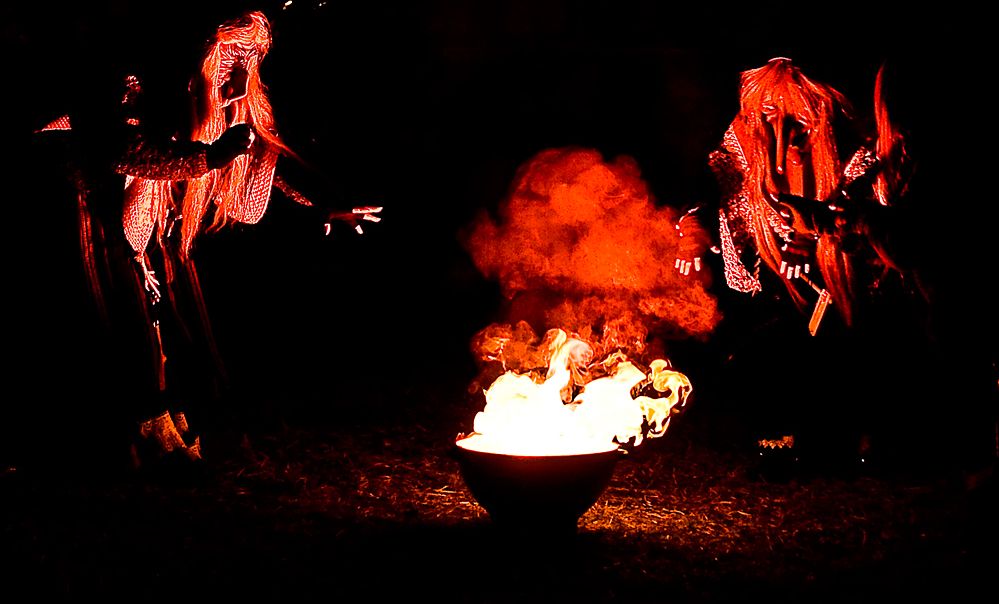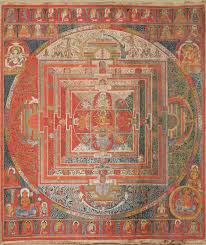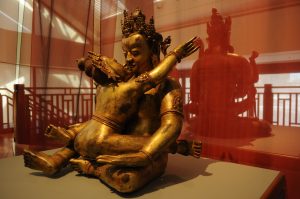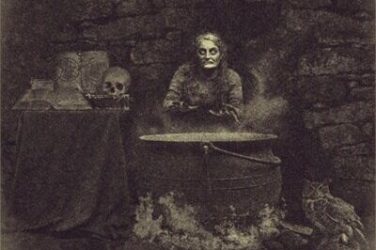by Taylor Ellwood
A little while back I was telling a friend about some of my recent magical experiments and he asked me if I ever experimented with a specific magic tradition and if so how that was received by people in the tradition.
It was a great question to ask and I told him that I had experimented with practices from specific traditions, but that for the most part it wasn’t well received.
People did not like a tradition being changed, but living a spiritual tradition inevitably creates change in the tradition.
In the spiritual traditions I’m part of, the experimentation I’ve done has helped me to go deeper into the tradition.
What do you think of when you hear or read the word tradition?
The first word that comes to my mind is old and the first definition that comes to my mind is a pattern of ritual behavior performed just the way it was taught, with little to no alteration.
Yet I’ve found that the word and definition that first comes to mind is not the most accurate description of a spiritual tradition.
A spiritual tradition has a history and a foundation of practice that is relevant to any work that is done in that tradition.
And it is important to respect that history and foundation because it is part of what goes into any magical work you do within that tradition.
At the same time, a spiritual tradition must necessarily evolve to some degree due to the changing needs people have.
The function of a tradition isn’t to mindlessly preserve what has been done in the past, but rather is to provide the members in the present a meaningful way to take the practices of the tradition and apply them to their lives, as well as carry them to future generations.
I want to share with you 7 reasons spiritual traditions can benefit from experimentation and still be the spiritual tradition that you are part of.
1. Experimentation is the adaptation of the tradition to the lives of the people in the tradition.
A spiritual tradition can’t be divorced from everyday life and the needs and demands that come with it.
A spiritual tradition provides a path for meeting the challenges of life, but those challenges sometimes requires change on the part of the tradition and that occurs through experimentation.
2. Experimentation can respect the tradition by researching the foundation and history of the foundation.
Not just any experimentation will do.
When you are part of a spiritual tradition it’s important to know the history and foundational practices.
The experimentation that results does so while still drawing on the history and foundational practices.
When you’re working in a spiritual tradition, you’re working with specific inner contacts and spiritual entities.
Your experimentation won’t just draw on random spirits, but will work with the inner contacts and spirits of the tradition, albeit in a way that invites to help you with the experiment.
3. A spiritual tradition is a living tradition.
A living tradition evolves over time. If a tradition is just kept as it was originally created, it eventually dies.
Honor the past and embrace the future.
When this occurs the spiritual tradition lives through the changes that occur.
4. Experimentation is curiosity and critical inquiry.
Without curiosity and critical inquiry it is hard to innovate or question why we do what we do.
In a spiritual tradition it is important to leave the door open to curiosity and critical inquiry because it allows us to discover what the tradition is, as well as what it can be.
We can discover where we’re holding ourselves back and also why we do specific activities.
5. A tradition that evolves is a tradition that is growing.
When a spiritual tradition evolves it also grows, because other people discover it.
If a spiritual tradition is just kept to a small group of people, it will eventually disappear.
When experimentation occurs, people want to share and that can allow other people to discover the tradition and make it part of their lives.
6. When you experiment you’ve moved beyond replicating into creating the tradition.
There is no one person who should be the ultimate authority of a spiritual tradition.
What makes a spiritual tradition work and be relevant is that each person involved in it can do the work and at some point step beyond replicating what’s been done before and bring their own innovations to the tradition.
Now you may face some resistance and questions, but that’s also good because it keeps you true to the tradition.
The innovations you develop need to honor what’s come before, why also pointing the way to the future.

Gif source Power listing wikia
7. A spiritual tradition changes but still retains what makes it a tradition when the experimentation is done in the tradition.
Your experimentation occurs in a specific context, namely that of the tradition, so whatever you bring to the tradition should be scrutinized and weighed in relationship to the tradition.
You don’t want to just come up with some off the wall approach that has no real relevance or relationship to the tradition.
Rather what you come up with should speak to the actual tradition and have a connection to what makes the tradition what it is.
Spiritual traditions inevitably change and experimentation is part of that change.
I’ve shared 7 reasons why experimentation is beneficial to a spiritual tradition, but also provided some guidelines for how that experimentation should occur.
You want to honor the tradition and you can do that with experimentation that draws on the tradition, but also draws on your experiences, curiosity, and critical inquiry.
About the Author:
 Taylor Ellwood is the mad scientist and magical experimenter of magical experiments. When he’s not experimenting with spiritual traditions and magical processes, he is a business wizard to eccentric entrepreneurs, while also enjoying the wonders of the Northwest in Portland, Oregon with his wife and 2 kids. He is currently writing his latest book Pop Culture Magic Systems.
Taylor Ellwood is the mad scientist and magical experimenter of magical experiments. When he’s not experimenting with spiritual traditions and magical processes, he is a business wizard to eccentric entrepreneurs, while also enjoying the wonders of the Northwest in Portland, Oregon with his wife and 2 kids. He is currently writing his latest book Pop Culture Magic Systems.
featured image source










Show Comments (1)